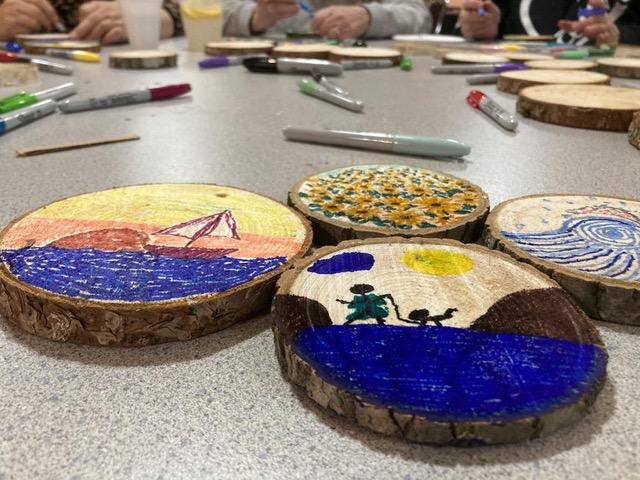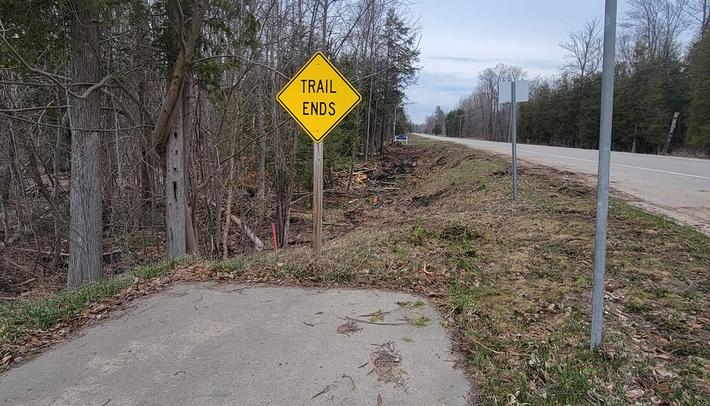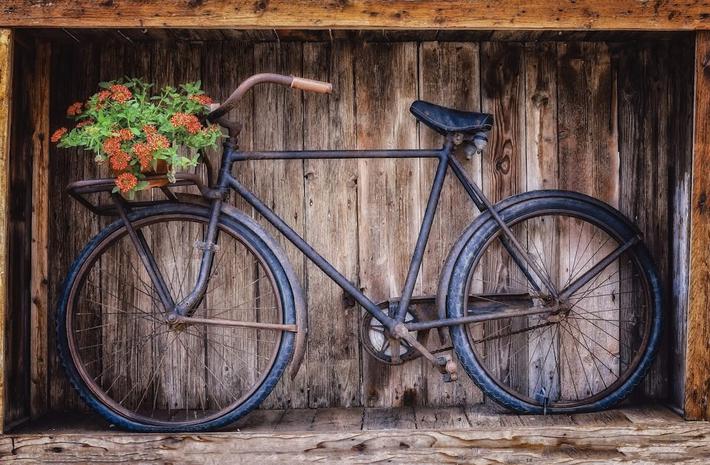
Water Knows No Borders
AquaAction and NMC to host 2023-2024 international competition for students and young professionals
By Ren Brabenec | Aug. 19, 2023
This fall, students, entrepreneurs, and tech-savvy youths ages 18 to 35 from across the U.S. and Canada will be able to compete and collaborate in innovating tech solutions to North America’s freshwater challenges.
AquaAction, a Canadian and American nonprofit dedicated to restoring freshwater health in North America, has partnered with Northwestern Michigan College (NMC) to bring the organization’s flagship program, the AquaHacking Challenge, to Traverse City.
“The AquaHacking Challenge is an open tech innovation concept for post secondary students and young professionals,” says AquaAction’s VP of Program Development & Impact Kariann Aarup. “The goal is to inspire and support students and young professionals in their efforts to develop tech-based solutions for freshwater issues over a 10-month period.”
AquaAction has hosted 10 AquaHacking challenges and helped establish 28 start-ups with $1 million in seed funding provided to date. However, this is the first challenge in which the Canadian organization has invited their American neighbors to participate.
Speaking to us from Vancouver Island in British Columbia, Aarup emphasized the importance of AquaAction taking their annual challenge bi-national. “Water is irrespective of borders. Therefore our consideration of freshwater issues should not just be a national concern,” she says.
In the Great Lakes region in particular, both the U.S. and Canada are stakeholders in meeting the freshwater challenges of our time. For example, the Great Lakes region represents 27 percent of the combined U.S. and Canadian population and 28 percent of Canadian and U.S. economic activity. The Great Lakes also comprise 21 percent of the world’s freshwater and supply some 40 million people with drinking water on both sides of the U.S.-Canada border.
The Challenge
AquaHacking Challenges are well-designed, highly structured programs in which AquaAction leaders define the issue: in this case, Great Lakes freshwater problems like pollution, algae blooms, PFAS, hydrocarbons, drinking water supply, E. coli outbreaks, municipality water challenges, etc. AquaAction invites students and young professionals to design tech-based solutions to those problems, and the organization then supports students to ensure they’re creating technically viable and marketable innovations.
While the students innovate, AquaAction guides. According to Aarup, AquaAction’s 10-month challenge involves pairing student competitors with water issue leaders. AquaAction also connects students to “solution adopters” or potential clients who may be the prospective consumer of the students’ innovations, be that consumer an individual, a household, a company, a nonprofit, or a municipality.
The challenge has two phases, Phase 1 for all contenders and Phase 2 for five semi-finalists. At the end of the challenge, the semi-finalists present their creations to judges. The first place winner gets $20,000 to help launch their innovation, second place gets $10,000, and third place gets $5,000.
In a sense, the challenge never really ends because participants become AquaHacking alumni. AquaAction continues to support alumni by curating content based on their needs, whether by connecting alumni with business development coaches, marketing help, and product sourcing or by connecting alumni to municipalities that could adopt their tech innovations.
The Michigan Connection
It was NMC President Nick Nissley who reached out to AquaAction with the idea of collaborating. Given NMC’s rich technological capacity, on-site resources (including associates and bachelors-level marine technology programs), the college’s Great Lakes Water Studies Institute, and its proximity to all things freshwater, Nissley felt NMC was the perfect place to host the challenge.
“Marine technology is a big strength for NMC,” says Ed Bailey, director of program and portfolio development at NMC. “Autonomous vehicles, sonar systems, mapping, point-source pollution detection, algae bloom identification, water quality assessment, pollution mitigation, you name it. If it’s involved with the water, we’re involved with it.”
It’s no mystery that freshwater solutions are needed in the Great Lakes, and the collaboration between NMC and AquaAction could not have come at a better time. Michigan’s Department of Environment, Great Lakes, and Energy (EGLE) released its 2022 State of the Great Lakes Report, identifying two Great Lakes’ ecosystems as “good” (Superior and Huron), two as “fair” (Michigan and Ontario), and one as “poor” (Erie). The report laid out challenges each lake faces, from persistent algal blooms in Lake Erie to increasing invasive species in Lake Michigan to contaminant concentrations found in fish in Lake Ontario.
“The hope is awareness,” says Bailey when asked what he hoped would come from the collaboration. “Our Great Lakes need our help, and NMC is uniquely positioned to educate and train the next generation of tech leaders and scientists who can take on those problems. This challenge will help put NMC on the map, not just as a regional hub for marine science and tech, but on the national and even international stage where it belongs.”
Success from Past Challenges
AquaAction’s ability to guide young and brilliant minds towards success in entrepreneurial careers that benefit freshwater environments is evidenced by the winners of past challenges. Just three examples include:
2015 Water Rangers: Kat Kavanagh from Val-des-Monts, Quebec, won the 2015 AquaHacking Challenge by creating a water testing kit (available to anyone) that “enables one to easily and quickly collect water quality data from samples taken from their local watercourses and share this data on an interactive online platform.”
2016 CANN Forecast: Naysan Saran and Nicolas Fortin St-Gelais of Montreal, Quebec, won the 2016 AquaHacking Challenge by developing AI models to “support municipal decision-making via InteliSwim, a tool that more reliably predicts recreational water quality, and via InteliPipes, a tool to help identify water pipes vulnerable to leaks and breaks.”
2020 Drinkable Water Solutions: Matthew Mizzi, Anita Taylor, and Robert Afari Halifax, Nova Scotia, won the 2020 Aqua Action Atlantic Canada Challenge for developing a mechanism and service that “assists private well owners with water testing to reduce known barriers and increase testing of well water quality.”
How to Participate
Registration is open now, so individuals interested in participating should register at AquaAction’s website and create their water-hacker profile. Once the challenge launches, participants will choose their multi-disciplinary team, select a water issue, tackle it, and develop tech-based solutions they can pitch to the judges.
Throughout the challenge, students and young professionals will have support from on-demand content provided by AquaAction. Participants who complete the program receive official certification and digital badging accredited by AquaAction and NMC.
The 2023-2024 AquaHacking Challenge is open to residents of the U.S. and Canada, ages 18 to 35. Candidates may be in post-secondary education, a recent graduate, or a young professional. Individuals interested in participating should visit aquaaction.org/blog/challenge/great-lakes-2023-24 to learn more about the challenge and to register for participation.
Photo courtesy of AquaAction.
Trending

Walking in an Artsy Wonderland
Michigan Legacy Art Park is hosting the “Raindrops” artwork created by Dewey Blocksma and Patricia Innis at th... Read More >>
Seven Takeaways from Local Real Estate Agents for the Spring/Summer Market
The last few years in local real estate have been akin to what one local agent described as the “wild west,” w... Read More >>
Blazing the Boyne City to Charlevoix Trail
We’re getting ever closer to an interconnected northern Michigan thanks to ongoing work on the Boyne City to Charlev... Read More >>


